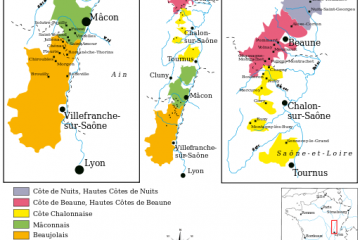Making wine sounds easy. Grow a few grapes, convert their sugar into alcohol and away you go. All natural. Straightforward. Winemaking is a lot more than that, though, and these days wineries can look more like factories or laboratories given all the machinery on-site. From the wine corker to the optical sorter, there’s a whole industry that provides much-needed technology to wineries. All of a sudden, things sound a little more complicated.
Let’s leave the winemaking to the experts, then. Inquisitive wine lovers should read on, though, as this guide will explain some of the most common and important machines that wineries use today.
From the tractor to the wine corker: Why wineries use technology
Wine is a natural product. At its essence, it’s fermented grape juice. There’s a lot more to the process of making wine, however, and thus there are many reasons why wineries make use of technological advances. Though it is fashionable to eschew as much mechanisation as possible, most wineries rely on machinery to a greater or lesser extent.
There is a lot at stake when making wine. As a seasonal, agricultural product, there is obviously a limit on the overall production at any given winery. Making wine is risky business, and any mistakes or damage done in the winery can lead to some serious losses of the overall crop.
3 important machines that wineries use
Technology can, and does, help. Whether that’s computerised temperature control during fermentation, or state-of-the-art wine corker machines and technology designed to eliminate corked wine, there’s no shortage of useful equipment.
1. Optical grape sorter
After harvest, grapes are sorted. This is traditionally done by hand, and requires teams of workers to sift through the freshly-picked grapes in search of imperfections such as rotten or unripe berries. As with any human activity, sorting by hand is open to individual error.
Some wineries have thus invested in optical sorter machines, which is usually used in conjunction with hand sorting as a type of quality control. The optical sorter uses camera technology to inspect every single grape, and is equipped to remove any berries that don’t fit the winemaker’s requirements. These are super-quick machines, and they cost a pretty penny, but they’re very effective indeed.
2. Temperature controlled fermentation vats
The grape juice needs to undergo alcoholic fermentation to make wine – otherwise it’s just grape juice! Alcoholic fermentation is where yeast converts the grape’s sugar content into alcohol content. This can be a very high-tech process, or not at all. Some natural winemakers like to leave things up to nature, and that’s OK, but their results can vary. Fluctuating temperature can lead to problems, and even outright disaster.
Many more winemakers like to use temperature control technology, then, to ensure that fermentation takes place according to plan. Temperature control technology prevents any wild fluctuations inside the fermentation vats or tanks, allowing for a smooth fermentation with little to no surprises!
3. Wine corker (or bottling line)
A tank of wine is all well and good, but it needs to get to the consumer somehow, and that’s where bottling comes in! While you can buy home wine corker kits on Google, most modern wineries will make use of a full-service wine bottling line, with wine corker included. Many large wineries have their own bottling lines on-site, while others will rent the machinery they need when they need it.
Bottling lines can be very basic or very complicated. Essentially, the machine is “fed” with empty bottles, which then enter something of a production line. The bottles are then filled with wine and pass through a wine corker to be sealed. Some machines may also have labelling and cap capabilities, though in other cases this will be done separately, potentially a lot later.
Have you ever visited a winery? Have you seen any of this equipment in action? Tell us about it!
[cta_generico id=2584]


